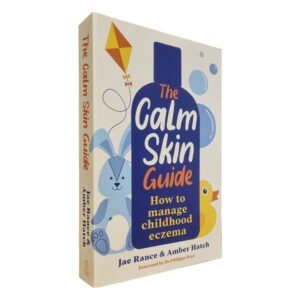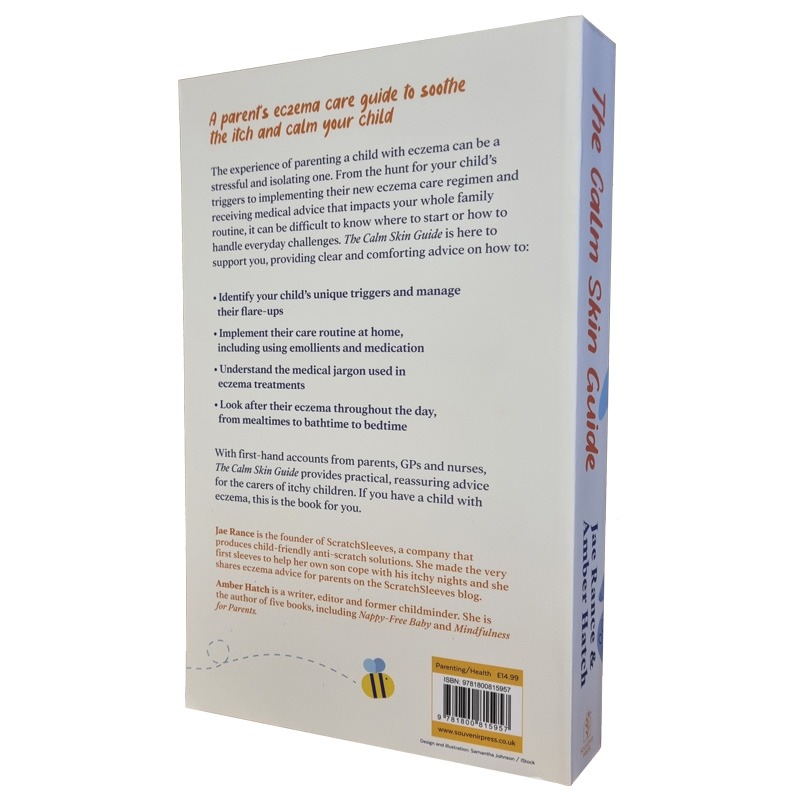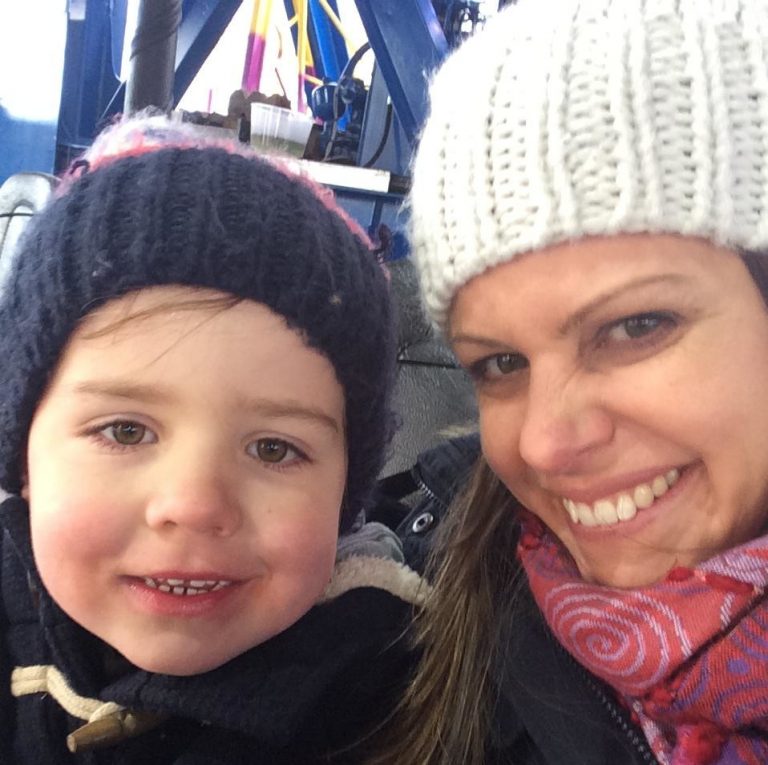Coping with eczema – The importance of building resilience



When thinking about how best to help your child to manage their eczema, there are two sides to the story. First, there are the physical symptoms. The itchy, red, raw skin and the challenge you have in preventing and managing flare-ups. Secondly, there are the emotional symptoms. In particular, the feelings of self-consciousness about looking different, which usually increase as toddlers become children and children turn into teenagers (you perhaps remember this only too well yourself!). We look at how you can build resilience in your eczema child.
We all know that children can be extremely kind but also extremely cruel. Any physical differences, like an eczema rash, which makes a child stand out can, unfortunately, make them easy targets. Full-on meanness is hard to manage. But even innocent remarks such as ‘what’s that rash on your neck?’ can have a negative impact. This is particularly true if the child continually hears comments about their appearance over a prolonged period.
As parents, we all have to help our children build their capacity to deal with life’s knock-backs. To become more resilient. Particularly when a child has a continuing condition like eczema. Teaching resilience is another step in the journey to help your child cope with their eczema symptoms and an issue that has come to the fore now that we are producing ScratchSleeves eczema clothing for older children and adults. These larger sizes help kids manage their eczema when senior school, hormones and issues around ‘fitting in’ can make life even more difficult living with eczema.
What is resilience?
You might have your own idea of what resilience is.
A paper by the Joseph Rowntree Foundation on parenting and resilience defined resilience as ‘doing better than expected in difficult circumstances’ and ‘general coping skills and mechanisms that help with the common challenges of everyday life’.
Resilience is associated with ‘the extent to which children are able to make use of, or benefit from, protective factors available to them.” Fortunately, the researchers found that ‘parents can buffer children from some of the worst effects…of adversity and can also nurture the characteristics in children that help them to cope with problems.’
With this in mind, how might you go about building resilience in your eczema child?

How to build resilience in eczema children
The importance of mindset
Part of the overall picture of resilience is an acceptance that negative things will happen. It’s just a fact of life. You can’t prevent or control everything, and you can’t avoid all setbacks. Relating this to eczema: you can’t cure it. Your child can only accept that they have it and that, with your support, it can be managed.
As adults, we learn that everything changes, nothing stays the same and that bad times pass. But children need to learn this sense of perspective over time. For this reason, we have used the word ‘resilience’ purposefully and frequently with our children as they’ve grown up. It has powerful connotations of being able to take control of your response to other people’s actions and words.
As well as discussing resilience, there are other ways to help your child build this valuable skill.
Seeing resilience in practice
Everyone enjoys stories of heroic achievements. The stories of human triumph over adversity as a result of the character’s resilience to overcome whatever challenges are faced. Disney films are a fantastic starting point, but as your child grows, they may look for real-world examples.
Fortunately, in nearly all areas of life, you can find inspiration. The world of sport is full of such people. Just look at Baroness Tanni Grey-Thompson, the Olympic gold-winning wheelchair athlete. Or Jesse Dufton, the first blind rock climber to lead an ascent of the Old Man of Hoy. These are truly inspirational people whose resilience is astounding. Whilst we don’t all aspire to achieve what they have achieved, it can be helpful to point your child to inspirational role models who can show what resilience looks like in practice. You’ll also find great role models closer to home. In our case, the kids’ karate teacher has Parkinson’s but keeps on teaching and inspiring his pupils. It’s astonishing how his Parkinson’s seems to fall away when he focuses on demonstrating a kata.
It’s also important to look at your own levels of resilience. The Joseph Rowntree Foundation stated that ‘children tend to base their own coping on their parents’ styles, pointing to the benefits of ‘firm, consistent and confident parenting’ which is shown to be associated with positive coping in both parent and child.
Taking a position of strength and understanding
The British Psychological Society points to the concept of ‘strength-based parenting’ in building resilience in children. This is about developing positive responses to potentially stressful situations, encouraging children to ‘identify and foster their abilities, talents, and skills and encouraging them to use them when faced with difficulties.’
This is an interesting perspective, as we all tend to solve our children’s problems far too often and find it difficult to give them the space to solve their own issues. As our children grow and move on to senior school, we have less opportunity to step in whenever there’s a problem, so the sooner they can learn that they are capable of managing challenges, the better. If we can avoid shielding our children from stress, and teach them self-regulation skills, they will build resilience.
Of course, this is easier said than done. In a way, perhaps we need to build our own resilience to watching our children go through adversity, knowing that supporting them to solve their own problems will be better for them in the long run. One approach is to take a position of empathy rather than problem solving. When your child comes to you with a problem take time to understand how they are feeling and validate those feelings. Then, once their emotions have calmed down, help your child to come up with a solution they think is workable.
As well as sharing our experience of bringing up an eczema child (and favourite allergy-friendly recipes), ScratchSleeves also manufacture and sell our unique stay-on scratch mitts and PJs for itchy babies, toddlers and children. We now stock sizes from 0-adult in a range of colours. Visit our webshop for more information.
The Calm Skin Guide
Love our blog? It's also available in book format with:
- First hand accounts from parents & medical professionals
- Easy navigation
- Comprehensive index
- Additional material
Signed copies available at no extra cost
Written by:
Reviewed by:
Interesting article? Don't keep it to yourself...
Read next...
You may also find helpful...
Quick buy


Multi Buy Discount

Spend between £30 - £60 and save 5%
Spend between £60 - £120 and save 10%
Spend over £120 and save 15%
Discount automatically applied at checkout
No Quibbles Guarantee

ScratchSleeves abide by a no quibbles guarantee.
Free UK Postage

Free packing and postage on all UK orders. For overseas orders to Europe postage is from £3.50, to USA is £6.50 and to the rest of the world, from £3.75.







